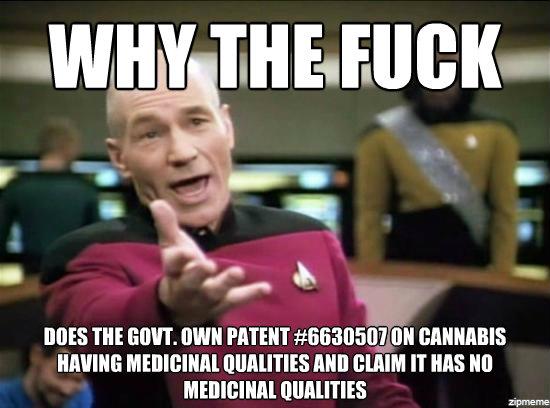Joe Biden’s Drug War Record Is So Much Worse Than You Think
Former Vice President Joe Biden has begun tip-toeing towards throwing his hat in the ring as a candidate in the 2020 Democratic Presidential Primary.
Few politicians have done more harm in America’s war on drugs than the former senator from Delaware.
Political watchers are expecting him to formally announce any day now. But Biden, who carefully cultivated a genial “Uncle Joe” image during his eight years as Obama’s veep, knows he’s got a history that could drag him down. Few politicians have done more harm in America’s war on drugs than the former senator from Delaware.
Just last month, on Martin Luther King Jr. Day, he addressed a room full of civil rights activists on the subject of criminal justice, hoping to shore up support.
“I haven’t always been right,” Biden told the National Action Network, “but I’ve always tried.”
Try telling that to the millions of people and entire communities who’ve had their lives torn apart by laws championed by kindly old Uncle Joe. From green lighting
civil asset forfeiture to incentivizing
mass incarceration to cheerleading
mandatory minimums and the
militarization of the police, Joe Biden has been a
driving force behind America’s disastrous approach to drug policy.
Original Drug War Architect
Many of the original architects of America’s drug war have retired or passed away. Biden remains one of the few still in power—and may soon reach for more.
His influence over drug policy and mass incarceration began in the 1980s, when, as a senator from Delaware, he served as chair of the powerful Senate Judiciary Committee.
Policies Biden personally put into place greatly expanded a racist, ineffective, costly, unjust and oppressive quagmire that was already an obvious failure when he first entered government service nearly 50 years ago. That same self-destructive drug war rages on today—in America and around the world.
America Changed, Biden Didn’t
Meanwhile, Biden remains one of very few prominent Democrats who’ve still failed to endorse cannabis legalization at the federal level. A policy that’s currently supported by 62% of Americans—including 45% of Republicans—and is already the law of the land in ten states remains too radical for him to sign off on.
Biden remains one of few prominent Democrats who’ve still failed to endorse cannabis legalization at the federal level.
At the very least, Biden seems to be aware of the fact that the times and public opinion are changing around him. He was plenty outspoken about drug policy in the 1980s, but has run silent on the issue for nearly a decade. The last time he substantively addressed legalization appears to be 2010, in an ABC News interview:
“There’s a difference between sending someone to jail for a few ounces and legalizing it,” he said. “The punishment should fit the crime. But I think legalization is a mistake. I still believe [marijuana] is a gateway drug.”
Well, Joe, it’s a free country—
believe anything you want. But the gateway theory has long been
thoroughly debunked. Even D.A.R.E. no longer promotes that old canard.
Biden: ‘Let’s Have a Drug Czar’
Let’s circle back to Biden’s humblebrag: that he hasn’t “always been right” when it comes to criminal justice.
When pressed for specifics, he says that after pushing for vastly harsher punishments for crack than for powder cocaine, he “spent years” working to undo his own racist fuckup. But in terms of accountability, that’s basically the end of it. Biden has never truly come to terms with the scope of the damage he’s done.
Plenty of politicians from both parties supported the drug war. Only Biden went further and cooked up the idea of a Drug Czar.
A lot of politicians from both parties vocally supported the war on drugs back in the days of “Just Say No.” But it was Joe Biden who pretty much singlehandedly dreamed up the idea of a cabinet level “Drug Czar”—a term he coined in
a 1982 interview with the
New York Times. Seven years later, after working in tandem with the Reagan administration, he saw that dream come to life when the White House created the Office of National Drug Control Policy (ONDCP).
Charged with formulating and administrating America’s drug prohibition game plan, the ONDCP almost immediately began agitating for a massive expansion of interdiction, enforcement, and incarceration efforts.
A 1989 report to Congress put it in dollar figures:
No attempt should be made to disguise the fact that significant new resources will be required to pay for the many proposals advanced in this report… Last February, this Administration requested nearly $717 million in new drug budget authority for Fiscal Year 1990. Now, after six months of careful study, we have identified an immediate need for $1.478 billion more. With this report, the Administration is requesting FY 1990 drug budget authority totaling $7.864 billion—the largest single-year dollar increase in history.
Doubling Down on Propaganda
In 1996, when the ONDCP came up for reauthorization, Biden voted in the senate for a bill that basically required the Drug Czar to spearhead a massive propaganda campaign directed at the American people.
“The Director shall ensure that no Federal funds appropriated to the Office of National Drug Control Policy shall be expended for any study or contract relating to the legalization (for a medical use or any other use) of a substance listed in schedule I of section 202 of the Controlled Substances Act (21 U.S.C. 812) and take such actions as necessary to oppose any attempt to legalize the use of [such] a substance (in any form).”
Which basically boils down to: No matter how much evidence comes to light showing cannabis is a safe and effective medicine, the Drug Czar is required, by law, to lie about it. No matter how much evidence piles up showing that the benefits of legalization far outweigh any potential harms, the Drug Czar is required by law to lie about it. Which they have all done.
The lying continues today. Under Donald Trump, the ONDCP supports the work of a
secretive White House anti-cannabis committee whose membership list reads like a murderer’s row of discredited drug warriors.
A Disparity of 100:1
Should Biden decide to jump into the race for the Presidency, he’ll have to either make a late conversion to cannabis legalization or explain why not. Either way, it’s not a good look. He’s also open to charges that his signature piece of legislation in the US Senate—the
1994 Violent Crime Control and Law Enforcement Act—played a key role in supercharging the for-profit prison industry and turning the United States into the nation with the world’s highest incarceration rate.
That same law spurred a ramping up of aggressive policing in poor and minority neighborhoods, while establishing a weight disparity for crack to powder cocaine at 100:1 (for the purposes of federal sentencing guidelines). Distribution of five grams of crack triggered a five-year mandatory minimum, as opposed to 500 grams of powder. Predictably, this meant the law vastly disproportionately targeted people of color and other at-risk communities.
According to a 2006 report from the American Civil Liberties Union,
Cracks in the System: Twenty Years of the Unjust Federal Crack Cocaine Law:
In 1986, before the enactment of federal mandatory minimum sentencing for crack cocaine offenses, the average federal drug sentence for African Americans was 11% higher than for whites. Four years later, the average federal drug sentence for African Americans was 49% higher. The effects of mandatory minimums not only contribute to these disproportionately high incarceration rates, but also separate fathers from families, separate mothers with sentences for minor possession crimes from their children, create massive disfranchisement of those with felony convictions, and prohibit previously incarcerated people from receiving some social services for the betterment of their families.
Golf Clap for ‘Reform’
That all sounds pretty terrible. But keep in mind, while Biden may not have always been right, he was always trying. And this is the one fuckup he reversed, right? In 2010 the Fair Sentencing Act—signed by President Obama while Biden served as his Vice President—reduced the disparity between crack and powder cocaine all the way down to 18:1—though
not retroactively.
The Sins of the Father
With a crowded field of Democrats already in the race, cannabis policy and criminal justice reform could emerge as a major wedge issue during a hotly contested primary season. So far, every declared Democratic candidate fully supports federal cannabis legalization. Some, like New Jersey Sen. Cory Booker, have been early sponsors of bills to do just that. So why should you vote for a guy who still thinks peaceful adults should get busted for weed?
Especially when the same rules don’t seem to apply to his own children.
In September 1998, Biden’s daughter Ashley
was arrested for cannabis possession in Louisiana—a state notorious for giving decade-long sentences for miniscule amounts of marijuana. But there’s no record of a conviction in Ashley Biden’s case.
In 2014, Biden’s son Hunter tested positive for cocaine on a drug test and was
discharged from the Navy just a month after reporting for duty. No criminal charges were filed.
There’s zero evidence either of them received any special treatment because of their father’s position as a powerful politician, though it’s certainly possible. What doesn’t seem possible is that Joe Biden would support one of his own children spending years behind bars for possession of a personal amount of drugs—not now, and not back in 1994 when he championed the crime bill.
I can’t even imagine the person who would want that for their own children. So how can you want it for someone else’s?






 This doesn't just pertain to being busted in an illegal dispensary. It pertains to any form of being detained in any way by the police.
This doesn't just pertain to being busted in an illegal dispensary. It pertains to any form of being detained in any way by the police.